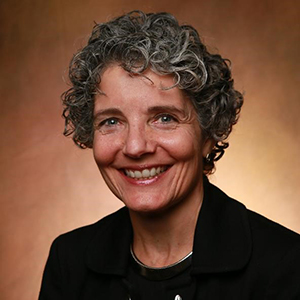Having served as a project evaluator and as a project researcher, it is apparent to me how critical it is to have conversations about roles at the onset of funded projects. Early and open conversations can help avoid confusion, help eliminate missed timing to collect critical data, and highlight where differences exist for each project team role. The blurring of lines over time regarding strict differences between evaluator and researcher requires project teams, evaluators, and researchers to create new definitions for project roles, to understand scope of responsibility for each role, and to build data systems that allow for sharing information across roles.
Evaluation serves a central role in funded research projects. The lines between the role of the evaluator and that of the researcher can blur, however, because many researchers also conduct evaluations. Scriven (2003/2004) saw the role of evaluation as a means to determine “the merit, worth, or value of things” (para. #1), whereas social science research instead is “restricted to empirical (rather than evaluative) research, and bases its conclusion only on factual results—that is, observed, measured, or calculated data” (para. #2). Consider too, how Powell (2006) posited “Evaluation research can be defined as a type of study that uses standard social research methods for evaluative purposes” (p. 102). It is easy to see how confusion arises.
Taking a step back can shed light on the differences in these roles and ways they are now being redefined. The role of researcher shows a different project perspective, as a goal of research is the production of knowledge, whereas the role of the external evaluator is to provide an “independent” assessment of the project and its outcomes. Typically, an evaluator is seen as a judge of a project’s merits, which assumes a perspective that a “right” outcome exists. Yet inherent in the role of evaluation are the values held by the evaluator, the project team, and the stakeholders as context influences the process and who makes decisions on where to focus attention, why, and how feedback is used (Skolits, Morrow, & Burr, 2009). Knowing more about how the project team intends to use evaluation results to help improve project outcomes requires a shared understanding of the role of the evaluator (Langfeldt & Kyvik, 2011).
Evaluators seek to understand what information is important to collect and review and how to best use the findings to relate outcomes to stakeholders (Levin-Rozalis, 2003). Researchers instead focus on diving deep into investigating a particular issue or topic with a goal of producing new ways of understanding in these areas. In a perfect world, the roles of evaluators and researchers are distinct and separate. But, given requirements for funded projects to produce outcomes that inform the field, new knowledge is also discovered by evaluators. The swirl of roles results in evaluators publishing results of projects that informs the field, researchers leveraging their evaluator roles to publish scholarly work, and both evaluators and researchers borrowing strategies from each other to conduct their work.
The blurring of roles requires project leaders to provide clarity about evaluator and researcher team functions. The following questions can help in this process:
- How will the evaluator and researcher share data?
- What are the expectations for publication from the project?
- What kinds of formative evaluation might occur that ultimately changes the project trajectory? How do these changes influence the research portion of the project?
- How does shared meaning of terms, role, scope of work, and authority for the project team occur?
Knowing how the evaluator and researcher will work together provides an opportunity to leverage expertise in ways that move beyond the simple additive effect of both roles. Opportunities to share information is only possible when roles are coordinated, which requires advanced planning. It is important to move beyond siloed roles and towards more collaborative models of evaluation and research within projects. Collaboration requires more time and attention to sharing information and defining roles, but the time spent on coordinating these joint efforts is worth it given the contributions to both the project and to the field.
References
Levin-Rozalis, M. (2003). Evaluation and research: Differences and similarities. The Canadian Journal of Program Evaluation, 18(2):1-31.
Powell, R. R. (2006). Evaluation research: An overview. Library Trends, 55(1), 102-120.
Scriven, M. (2003/2004). Michael Scriven on the differences between evaluation and social science research. The Evaluation Exchange, 9(4).

Except where noted, all content on this website is licensed under a Creative Commons Attribution-NonCommercial-ShareAlike 4.0 International License.






 EvaluATE is supported by the National Science Foundation under grant number 1841783. Any opinions, findings, and conclusions or recommendations expressed on this site are those of the authors and do not necessarily reflect the views of the National Science Foundation.
EvaluATE is supported by the National Science Foundation under grant number 1841783. Any opinions, findings, and conclusions or recommendations expressed on this site are those of the authors and do not necessarily reflect the views of the National Science Foundation.